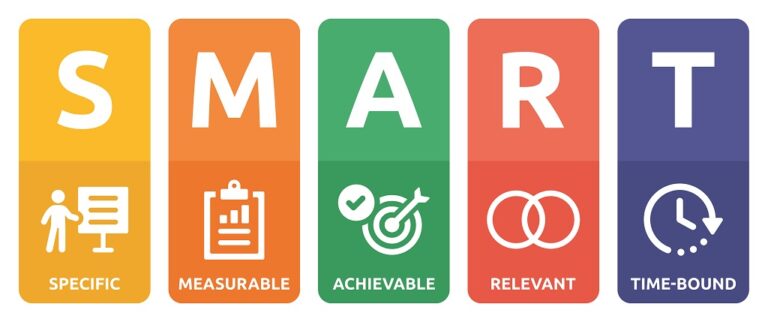
Gross Domestic Product (GDP) is one of the most fundamental measures used to evaluate a nation’s economic vitality. It represents the cumulative monetary value of all goods and services produced within a country’s borders during a specified period, typically measured quarterly and annually. As a widely recognized metric, GDP offers a comprehensive snapshot of economic performance, capturing key indicators such as growth trends, productivity levels, and overall economic well-being. Policymakers, investors, and businesses alike rely heavily on GDP data to analyze economic conditions, make informed decisions, and strategize effectively for the future. Despite its prominence, however, GDP is not without limitations, and exploring these shortcomings reveals a more nuanced understanding of economic performance.
The Enigma of E355: Exploring the “Deleted Scene” in GDP
The concept of a “deleted scene” in GDP calculations, referred to as E355, brings attention to economic activities that are traditionally overlooked or excluded from standard metrics. This enigmatic term highlights aspects of economic activity that escape conventional accounting frameworks. These unrecorded components may include activities within the informal economy, contributions to environmental sustainability, or non-market transactions such as volunteer work, caregiving, and household labor. The omission of such elements from GDP metrics often results in an incomplete and potentially misleading picture of a nation’s true economic landscape. By failing to account for these “hidden” activities, the scope of economic analysis is narrowed, raising important questions about the inclusiveness and accuracy of GDP as a measure.
Understanding the Implications of E355

The existence of E355 underscores significant limitations in the way GDP reflects economic realities. While GDP effectively measures market-based economic activities, it does not capture the full spectrum of contributions that support and sustain an economy. By neglecting informal economic activities, unpaid domestic labor, and other non-market transactions, GDP assessments risk underestimating the scale, diversity, and complexity of economic systems. This oversight has far-reaching implications, particularly for policy decisions. Without acknowledging these excluded activities, governments may design economic policies that fail to address critical needs or accurately represent the lived experiences of their citizens. Public perceptions of economic health, informed by GDP metrics, may also be skewed, leading to misunderstandings about a nation’s true economic standing.
E355 and Economic Policymaking
Incorporating the insights provided by E355 into economic policy formulation is essential for fostering inclusive and equitable growth. Acknowledging and accounting for these overlooked economic contributions allow policymakers to address disparities more effectively, design better-targeted social welfare programs, and promote initiatives that reflect the realities of diverse economic activities. For example, recognizing the economic value of unpaid caregiving or volunteer work could inspire governments to provide greater support for caregivers, introduce tax credits, or allocate resources to bolster social infrastructure. Moreover, integrating environmental contributions and informal sector activities into economic planning could lead to more sustainable development strategies that balance economic growth with social equity and ecological preservation. In doing so, policymakers can ensure that economic progress benefits a broader range of stakeholders.
Challenges in Measuring E355
Quantifying the hidden components of E355 presents a complex set of methodological and practical challenges. Activities within the informal economy, such as street vending, casual labor, and subsistence farming, often lack formal records or reliable data. Similarly, unpaid domestic work and volunteer activities are difficult to measure and value in monetary terms. Traditional statistical tools struggle to account for these contributions, necessitating the development of advanced methodologies and innovative economic models. Efforts to bridge these gaps include harnessing technology, leveraging big data, and employing participatory approaches to gather more comprehensive and accurate information. However, these endeavors require substantial resources, international collaboration, and a commitment to expanding the scope of economic measurement.
A Global Perspective on E355
The challenges associated with E355 are not confined to any one nation; they represent a global economic issue that demands collective attention. Across the world, countries face difficulties in capturing and integrating the hidden dimensions of economic activity into their GDP calculations. The informal economy, for example, constitutes a significant portion of economic activity in many developing nations, while unpaid caregiving and environmental contributions are critical factors in both developed and developing economies. Collaborative international efforts are underway to address these challenges, with organizations such as the United Nations and the International Monetary Fund working to develop standardized methodologies for measuring these excluded activities. These initiatives aim to enhance cross-country comparability, improve the accuracy of global economic assessments, and provide a more cohesive understanding of the interconnected nature of economies worldwide.
Understanding GDP – Deleted Scene – E355: Key Facts
The concept of “Deleted Scene – E355” within the realm of Gross Domestic Product (GDP) calculations sheds light on the dimensions of economic activity that traditional metrics fail to capture. Here are the critical facts surrounding this intriguing aspect of economic measurement:
1. Definition of E355

E355 refers to economic activities and contributions that are excluded from standard GDP calculations. These include non-market activities, informal sector work, household labor, volunteer efforts, and environmental contributions. The term symbolizes the “hidden” or “deleted” aspects of economic value that go unmeasured in conventional accounting systems.
2. Types of Activities Under E355
- Informal Sector Work: Includes jobs like street vending, casual labor, and home-based enterprises that often operate outside formal regulatory frameworks.
- Unpaid Domestic Labor: Tasks such as caregiving, cooking, and household maintenance, typically performed within families without monetary compensation.
- Volunteer Activities: Services provided freely for community or societal benefit, which contribute significantly to social well-being.
- Environmental Contributions: Ecosystem services like carbon sequestration, clean water provision, and biodiversity, which sustain economies but are rarely quantified in GDP.
3. Impact on Economic Assessments
By omitting E355 elements, GDP calculations provide an incomplete picture of a nation’s economic activity. This can lead to:
- Underestimation of economic productivity and diversity.
- Skewed policy priorities that overlook critical contributions, such as those from unpaid caregivers or the environmental sector.
- Misrepresentation of societal well-being, especially in regions where informal economies play a dominant role.
4. Challenges in Capturing E355
The measurement of E355 is fraught with methodological difficulties, including:
- Data Collection: Informal sector activities and unpaid work often lack records, making quantification difficult.
- Valuation: Assigning monetary value to non-market contributions like caregiving or environmental benefits is complex.
- Standardization: Developing universally accepted methods to include E355 in GDP requires international consensus and coordination.
5. Global Importance of E355
The significance of E355 extends worldwide, as many economies heavily rely on activities that GDP does not account for:
- In developing nations, the informal economy can constitute a substantial portion of economic activity.
- Developed countries often overlook the critical economic value of volunteerism and environmental preservation in their metrics.
6. Implications for Policymaking
Recognizing and integrating E355 into economic analysis can:
- Enhance inclusivity in policy formulation by addressing hidden disparities.
- Promote sustainable development through acknowledgment of environmental contributions.
- Improve social welfare by recognizing and supporting unpaid domestic work and volunteer efforts.
7. Efforts to Address E355
International organizations and researchers are striving to bridge the gap between GDP and E355. Initiatives include:
- Developing alternative metrics, such as the Human Development Index (HDI) and the Genuine Progress Indicator (GPI), which account for non-market activities.
- Utilizing big data and participatory research to collect more accurate information on informal and unpaid contributions.
- Advocating for the inclusion of environmental accounting in national economic assessments.
8. The Future of GDP and E355
As economies evolve and global challenges like climate change and inequality grow, the limitations of GDP are becoming more evident. Addressing the “deleted scene” of E355 will likely play a crucial role in shaping economic measurements for the future, ensuring they reflect the true breadth and depth of human and environmental contributions to prosperity.
Conclusion
Gross Domestic Product (GDP) is a critical economic measure but excludes non-market activities like informal sector work, unpaid domestic labor, volunteer contributions, and environmental services, collectively termed E355 or the “deleted scene” of GDP. These omissions result in underestimations of productivity, skewed economic perceptions, and poorly targeted policies. Addressing E355 involves developing advanced tools, utilizing big data, and establishing international standards to capture these hidden contributions. Incorporating E355 into economic analysis enables a more accurate and inclusive understanding of economic realities, fostering sustainable development and equitable growth across society.
FAQs: Understanding GDP – Deleted Scene – E355
Q: What is E355 in the context of GDP?
A: E355 refers to the “deleted scenes” or hidden aspects of economic activity that traditional GDP calculations exclude. These include informal sector activities, non-market transactions, environmental contributions, and unpaid labor, such as caregiving and volunteer work.
Q: Why does GDP exclude E355 activities?
A: GDP focuses on market-based transactions with monetary value, as these are easier to measure and quantify. Activities in the informal economy or those without direct monetary exchange, like household labor or environmental services, are challenging to capture and value in monetary terms.
Q: How does excluding E355 affect economic analysis?
A: By not accounting for E355, GDP provides an incomplete picture of economic activity, underestimating productivity and diversity. This can skew policy priorities, misrepresent societal well-being, and overlook critical contributions to the economy.
Q: What are examples of activities under E355?
A: Examples include:
- Street vending or subsistence farming in the informal economy.
- Unpaid domestic work such as childcare and eldercare.
- Volunteer activities that benefit communities.
- Environmental services like carbon sequestration or water purification.
Q: What challenges exist in measuring E355?
A: Key challenges include:
- Data Collection: Informal and unpaid activities often lack reliable records.
- Valuation: Assigning monetary value to non-market activities is complex.
- Standardization: Developing consistent methods across nations requires global collaboration.
Q: Why is E355 significant on a global scale?
A: E355 is essential for understanding the true economic landscape in both developed and developing nations. In developing economies, the informal sector can make up a large portion of economic activity, while in developed nations, unpaid work and environmental contributions are often undervalued.
Q: How can E355 insights improve policymaking?
A: By integrating E355 into economic analysis, governments can design more inclusive policies, address disparities, promote sustainable development, and better allocate resources to sectors like social welfare and environmental preservation.
Read Next: rowdy-robertson






